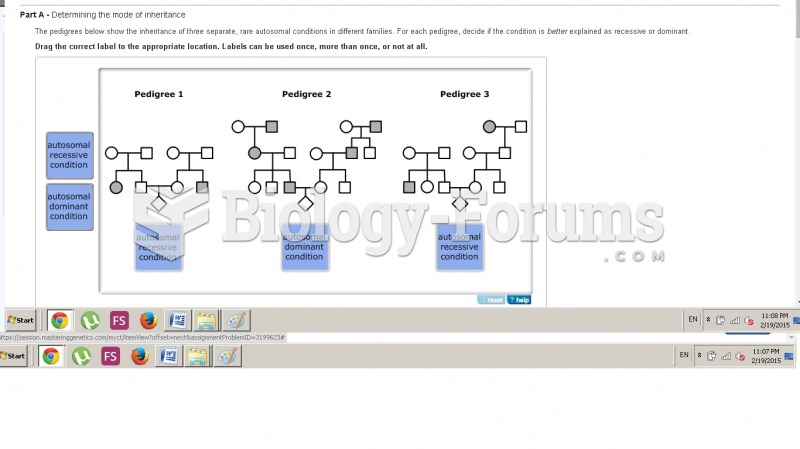|
|
|
All patients with hyperparathyroidism will develop osteoporosis. The parathyroid glands maintain blood calcium within the normal range. All patients with this disease will continue to lose calcium from their bones every day, and there is no way to prevent the development of osteoporosis as a result.
Cancer has been around as long as humankind, but only in the second half of the twentieth century did the number of cancer cases explode.
Atropine was named after the Greek goddess Atropos, the oldest and ugliest of the three sisters known as the Fates, who controlled the destiny of men.
Fungal nail infections account for up to 30% of all skin infections. They affect 5% of the general population—mostly people over the age of 70.
In the ancient and medieval periods, dysentery killed about ? of all babies before they reach 12 months of age. The disease was transferred through contaminated drinking water, because there was no way to adequately dispose of sewage, which contaminated the water.
 The Taung Child, the first of the australopithecines to be discovered, is the type specimen for Aust
The Taung Child, the first of the australopithecines to be discovered, is the type specimen for Aust
 (a) Initial mtDNA results suggested modern humans and Neadertals were equally distantly related to D
(a) Initial mtDNA results suggested modern humans and Neadertals were equally distantly related to D





